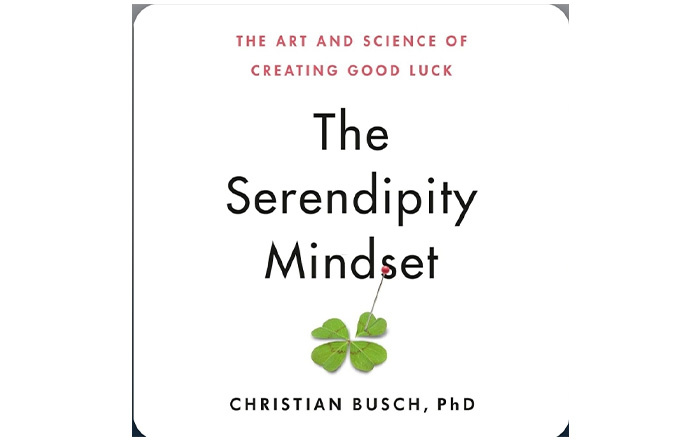Where to find this idea:
The Serendipity Mindset: The Art and Science of Creating Good Luck by Christian Busch
As good ol’ nerds, we want to kick off today’s idea with a definition, the definition of serendipity. Based on the book The Serendipity Mindset, serendipity is “unexpected good luck resulting from unplanned moments in which proactive decisions lead to positive outcomes.”
Contrary to popular belief, serendipity is not something that just happens to us while we’re sitting back and waiting for good fortune to fall into our laps, or because we find ourselves at the right place at the right time. Serendipity is not blind luck. It’s active, smart luck that depends on our ability to stay open to the unexpected, connect the dots between apparently unrelated events and take advantage of situations that life throws at us.
Serendipity is a process. An unexpected situation that triggers serendipity is just the first step of that process, but it’s up to us to see beyond the initial step. You might have met your partner by pure chance, but how you proceed from there by giving each other signals and communicating, that’s not pure luck, that’s serendipity.
Serendipity can be cultivated as a mindset by embracing the attitude of curiosity, adaptability, and openness to the unknown. It’s about being willing to step outside of our comfort zones, take risks, and see where the journey takes us.
You want a fun fact? The post-it note was invented thanks to serendipity.
3M researcher, Spencer Silver, aimed to create a strong adhesive for the aerospace industry, but instead invented a weak, residue-free adhesive. Initially deemed a failure, this adhesive proved perfect for paper. That’s how sticky notes were born.
Another example: our “Sunday With” section is the result of serendipity. After we stumbled upon a tweet about one person’s Sunday ritual, we asked them to share more about it in The Boonly, which sparked the idea for a whole new section.
Here’re some things you can do to cultivate the serendipity mindset and invite more serendipity into your life:
- Use knowledge from one area and apply it to another
- Be observant and curious
- Be ready to reframe what is already there
- See situations as opportunities, not problems
- Play it by ear sometimes
- Ask questions and listen
- Put yourself out there (e.g. send someone you want to meet an email)
- Tell people more about yourself, so they can also connect the dots
- Try to detect the general in the specific

